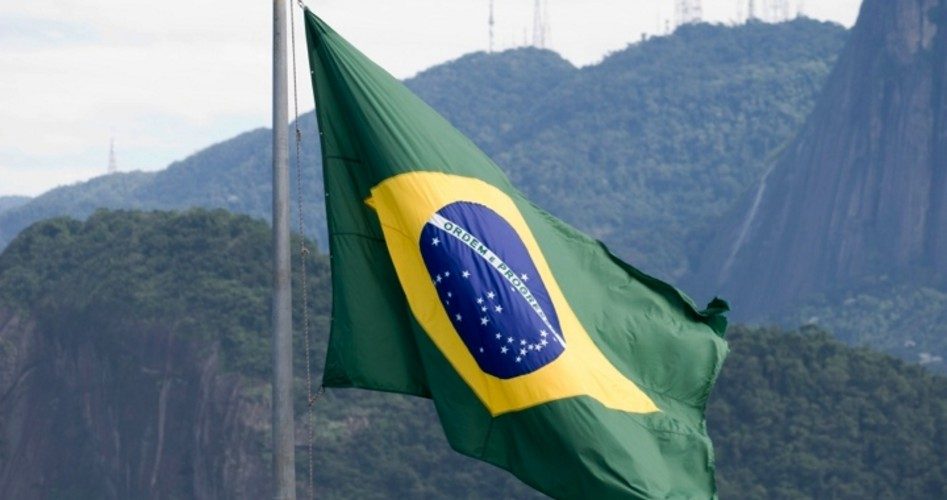
On Wednesday, Fitch downgraded Brazilian debt to junk status, a move that caught almost no one by surprise. Standard & Poor’s made that move in September and Moody’s is likely to do the same shortly.
These downgrades reflect a long litany of difficulties Brazil has faced for years, masked briefly by its inclusion as a BRICS (Brazil, Russia, India, China, South Africa) country seven years ago and the prediction by the International Monetary Fund (IMF) in 2013 that Brazil’s economy would grow four percent annually for the foreseeable future.
The steady decline in the purchasing power of its currency (the real), the drop in the country’s stock market (as measured by the Bovespa), the sharp decline in wages, the rise in unemployment, and the increasing cost of servicing the national debt (which consumes eight percent of the country’s output) have all contributed to a decline in confidence among Brazilians concerning their country’s future. Add to this the huge decline in commodity prices, especially oil, and the impeachment proceedings just launched against Brazilian president Dilma Rousseff for involvement in a massive corruption scandal regarding national oil company Petrobas, and it’s safe to say that the future for Brazilians looks bleak. Not helping any is the strong dollar and the decline of China’s economy, which has cut Brazilian exports of raw materials dramatically.
The trigger for Fitch was President Rouseff’s decision to override her finance minister’s austerity plan and instead launch new government spending in Keynesian fashion to reinvigorate the economy. Part of the spending is designed to build out the facilities for the 2016 Olympics, touted as an economic engine of growth by promoters. The failure of this Keynesian “remedy” will only add to Brazil’s problems.
Investors have been exiting Brazil’s stock and bond markets for months (its Bovespa index is down 21 percent since last May). Brazil’s bonds have been selling well below par value since the September downgrade by Standard & Poor’s. The downgrades have negatively affected Brazilian companies seeking funds from the debt market, resulting in new issues of private debt plummeting more than 80 percent this year alone. Starving the economy of necessary capital, the results have been predictable. The government has been running increasingly large deficits (tripling just since 2014) being funded by inflation of its currency. This has led to price increases, which have been fought by government price controls, which have in turn led to massive shortages of necessities.
The Petrobras corruption scandal is now threatening the stability of the government itself. Especially galling to Brazilians was Rouseff’s promise during her reelection campaign that her administration would fight corruption and restore the economy. Hundreds of thousands of protesters flooded the streets earlier this year when revelations of the scandal reaching to the very top of her administration were disclosed, dropping her approval ratings into single digits.
Antony Mueller, writing at Mises.org, says that Brazil’s problem is economic, political, and social: “The confluence of such a triple crisis increases the risk that any one of them gets worse because each individual crisis affects negatively the other crises. The consequential chain from the economic to the political and from there to the social … goes into reverse … the social crisis worsens the outlook to get out of the political and the economic crisis.”
Brazil’s problems are also demographic. With its present birth rate well below replacement levels, the population is getting older without the support of a younger cohort coming up behind them.
Marxist policies adopted to revive the economy have also failed. As Mueller explained:
The ideological dominance of statism, socialism and interventionism is present in every layer of the Brazilian society — not only in politics or academia, but also in the business community itself…. Anybody with an alert mind must see that statism has failed; that the ideas of socialism and interventionism are sterile and that they produce mainly frustration, stagnation, and crises.
The only solution, according to Mueller, is a massive cultural revolution, throwing off this stagnant and dangerous ideology and replacing it with an entrepreneurial one: “Only based on a fundamental change of ideology in favor of markets and individual and entrepreneurial activity, will countries like Brazil [re]gain long-term prosperity.”
A graduate of an Ivy League school and a former investment advisor, Bob is a regular contributor to The New American magazine and blogs frequently at LightFromTheRight.com, primarily on economics and politics. He can be reached at [email protected].
Related article:
Brazil’s Petrobras Scandal Widens, Threatens President Rousseff



